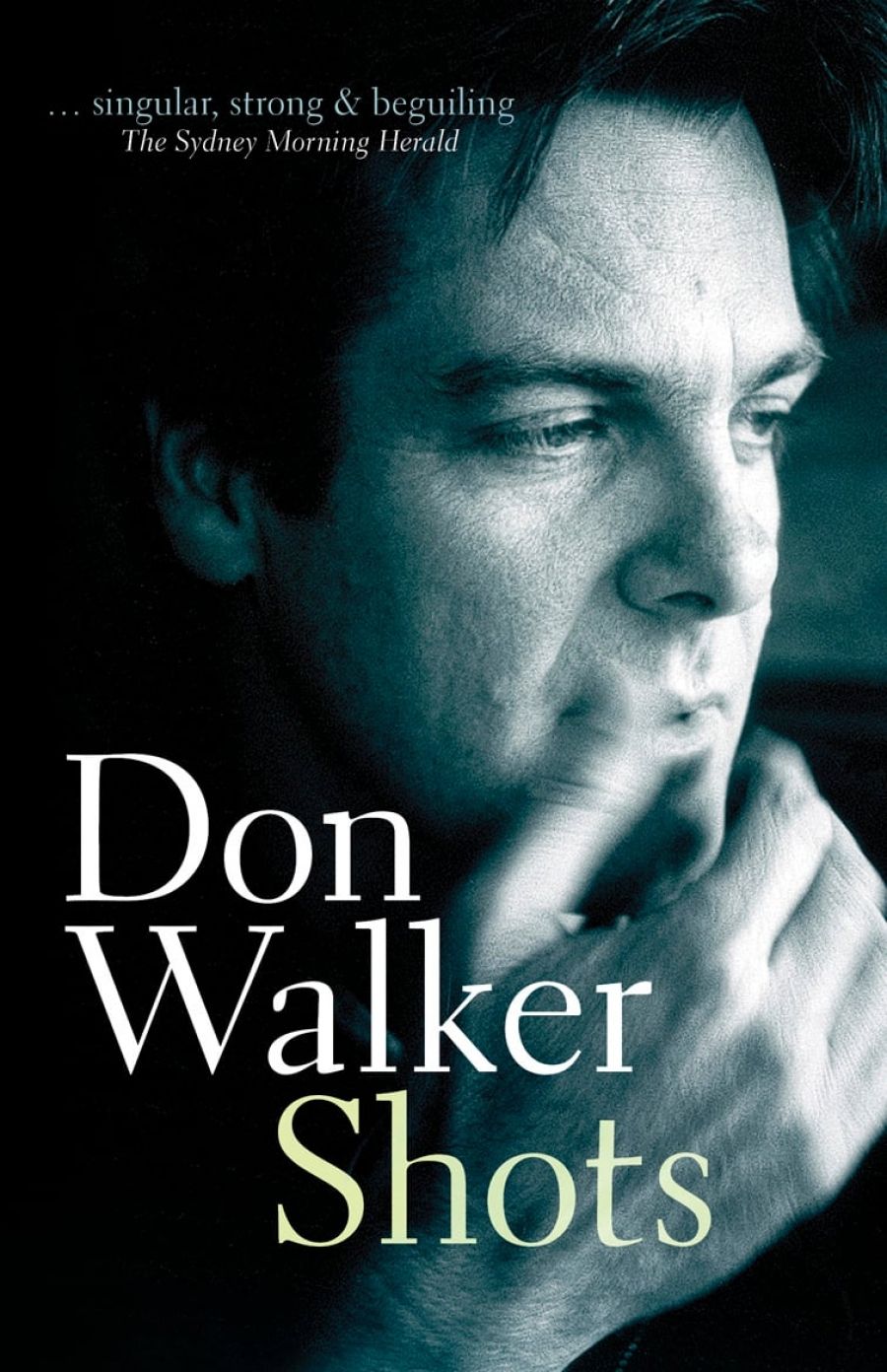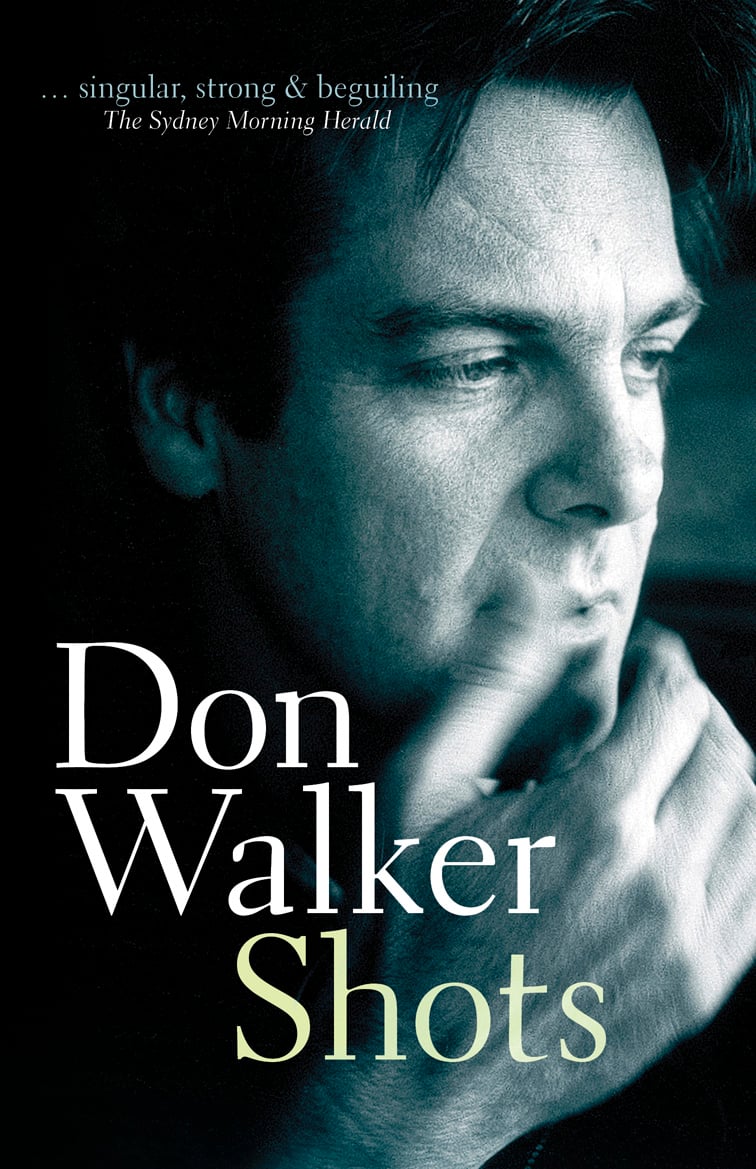
- Free Article: No
- Contents Category: Memoir
- Review Article: Yes
- Article Title: Connecting the dots
- Online Only: No
- Custom Highlight Text:
Shots, so the media release claims, is written in ‘mesmerising prose.’ Yeah, right! This is the life story of a rock musician they are talking about. I can recall attempting to read one such memoir, a well-meaning present from a friend who might have known better. It was by Ray Manzarek, of The Doors; it was called Light My Fire (1999) and it was completely and utterly awful. Manzarek’s organ may have on occasion swooped and swirled like a graceful albatross, but his prose is as scruffy and unsociable as a giant petrel. After twenty pages, I couldn’t care less whether it was Jim Morrison or Jack the Ripper buried in that Paris graveyard. Now, here I am faced with the journal of another borderline celebrity with too much time on his hands, a keyboardist from an ‘iconic’ rock band to boot. This book could not be anything other than a waste of everyone’s time.
- Book 1 Title: Shots
- Book 1 Biblio: Black Inc., $27.95 pb, 195pp
- Book 1 Cover Small (400 x 600):

- Book 1 Cover (800 x 1200):

Except that it isn’t. Shots is good. It is actually better than good. Most of the time it’s brilliant. It is a book that blasts away every last vestige of the crude, boozy, footstomping, flag-waving Australiana that has until now enveloped the Cold Chisel story like a filthy smog, leaving behind only the simmering highways, the trashy motels, the dank pubs, and the monotonous suburbs of a nation slouching apathetically through the remnants of the twentieth century. There are no private jets, no back-slapping award ceremonies: Shots is just Don Walker expurgating his mind of a thousand memories lived, as we dream, alone.
Walker, at times, teeters on the edge of a stream of consciousness mode, an interesting feature in that his sister – the novelist Brenda Walker – chose Samuel Beckett as her PhD research subject. However, Shots is perhaps more evocative in metre and metaphor of As I Lay Dying-period William Faulkner, or even J.D. Salinger’s The Catcher in the Rye, sustained by (often sparsely punctuated) passages studded with imagery that seems to fit the moment perfectly despite our only having the author’s word for it. An interstate express train calls out like ‘a huge iron cockerel.’ An over-ambitious homecoming concert is set up by ‘someone whose dreams have strangled their common sense.’ A young reporter is a ‘poor bugger trained to scrape headlines off the pavement.’ University examinations loom as a series of ‘staggered executions and resurrections.’ An acquaintance returns from Vietnam with his ‘skull hollowed out and filled with nightmares.’
I do not mean to sound irreverent or facetious in mentioning Walker in the same breath as Faulkner and Salinger. Shots might not be that good, but it’s bloody good. The book I read immediately before it was The Pickwick Papers. Writing could not be done better, I decided. Yet Shots certainly does not lose a great deal in the juxtaposition. That it is the author’s first stab at the genre only makes his achievement all the more striking.
I love the way Walker connects the dots. As the airplane bearing him down on Adelaide hangs suspended on the pristine yet timeless air currents moving in from the Great Southern Ocean, Walker himself hovers poised over the new life that awaits him among the multitude of old ones below. I also enjoyed drawing lines between dots left unconnected. Walker, who started out as a scientist, describes notes played on a fender guitar as sounding like ‘the deep thrum of a mile of fencing wire singing to itself as a storm approaches.’ Years later, Alan Lamb, also a scientist and one of this country’s great unsung musical pioneers, attached contact microphones to abandoned telegraph wires in outback Australia, capturing the most incredible symphonies of sound. Some of Lamb’s music was used in the soundtrack to the Rowan Woods film The Boys (1998). With Little Fish (2005), Woods recorded, to similarly startling effect, a children’s choir singing the Don Walker song ‘Flame Trees.’
Elsewhere, Walker recalls his own little SETI-project, a university summer spent working at the Parkes radio telescope in New South Wales. Could he possibly be aware of the subsequent subgenre of electronic music that has sought to reproduce the hums, drones, and miscellaneous static of deep space, faceless artists with astronomical names like Arecibo and Dreams of Dying Stars? We are getting about as far from Cold Chisel as it is possible to be now, but Shots is full of unexpected twists.
Walker’s musings do not always ring true. A Sydney bookshop that is almost certainly Gould’s in Newtown is earmarked for demolition in a future decade, but as far as I know the ‘sullen Trot’ still lurks behind the counter there. Along with Marxists, women frequently fare badly, with the misanthropy coming a bit too close to misogyny in places. But in the end the writing is so good, and Walker’s self-deprecation so affecting, that he can get away with just about anything. By setting out life’s tragic drama so eloquently on the page, he manages to let a little light into a dark and mostly cheerless world. Shots fizzles out a little in the final two chapters, which is fitting in a way, as these cover the period after Cold Chisel (the band, incidentally, is never mentioned by name) spluttered to a halt, abandoning its core songwriter to a life of itinerant flotsam.
Shots is at heart a down-to-earth story told in an uncomplicated manner, but sometimes down-to-earth and uncomplicated works just right, as when, on his 1975 album Blood on the Tracks, Bob Dylan used nobody-from-nowhere session musicians to add simple embellishments to what became some of his greatest songs. To paraphrase Dylan, this quite wonderful book suggests that, in the end, Walker also went on to win the war despite losing every battle.


Comments powered by CComment